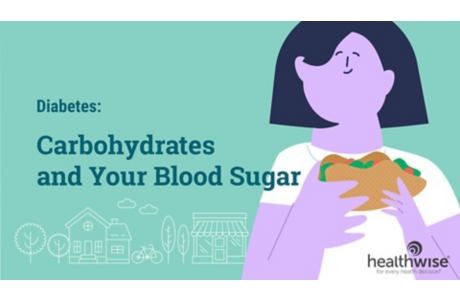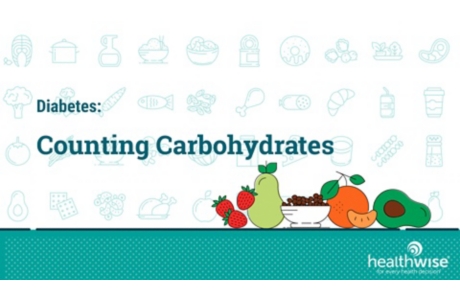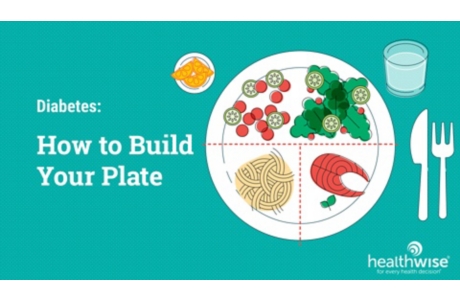Diabetes: Counting Carbs if You Don't Use Insulin
Overview
Carbohydrate counting can help you control your blood sugar.
- It helps you know the amount of sugar and starch (carbohydrate) in the foods you eat. This is important because carbohydrates affect your blood sugar more than fats or proteins do.
- Learning how to spread carbohydrates throughout the day can help you prevent high blood sugar.
- Testing your blood sugar after meals can help you see how different carbohydrate foods affect your blood sugar level.
A registered dietitian can help you learn to count carbs and plan your meals and snacks.
How to count carbohydrates
Here are some tips for eating a healthy, balanced diet when you count carbs.
- Work with a registered dietitian or a diabetes educator.
They can help you plan the amount of carbohydrates to include in each meal and snack.
- Pay attention to serving sizes.
- Read food labels to find carb amounts and the serving size.
- It might be helpful to measure and weigh your food when you are first learning to count carbs.
- Choose lean protein sources.
Foods that contain lean protein (such as beans, tofu, chicken, and fish) are an important part of a balanced diet.
- Eat less saturated fat.
Choose unsaturated fats like canola oil and olive oil instead of butter or shortening. Nuts and seeds, fatty fish, and avocados are other healthy fat sources.
Planning your daily amount of carbs
Your daily amount of carbs depends on several things, such as your weight, how active you are, which diabetes medicines you take, and what your goals are for your blood sugar levels. A registered dietitian or diabetes educator can help you plan how many carbs to include in each meal and snack.
For most adults, a guideline for the daily amount of carbs is:
- 45 to 60 grams at each meal. That's about the same as 3 to 4 carbohydrate servings.
- 15 to 20 grams at each snack. That's about the same as 1 carbohydrate serving.
Related Information
- Carbohydrate Foods
- Counting Carbohydrate Grams or Servings
- Diabetes in Children: Counting Carbs
- Diabetes: Coping With Your Feelings About Your Diet
- Diabetes: Counting Carbs
- Diabetes: Counting Carbs if You Use Insulin
- Diabetes: Using a Plate Format to Plan Meals
- Food List for Diabetes
- Form for Carbohydrate Counting
- Quick Tips: Smart Snacking When You Have Diabetes
Credits
Current as of: September 20, 2023
Author: Healthwise Staff
Clinical Review Board
All Healthwise education is reviewed by a team that includes physicians, nurses, advanced practitioners, registered dieticians, and other healthcare professionals.
Current as of: September 20, 2023
Author: Healthwise Staff
Clinical Review Board
All Healthwise education is reviewed by a team that includes physicians, nurses, advanced practitioners, registered dieticians, and other healthcare professionals.




